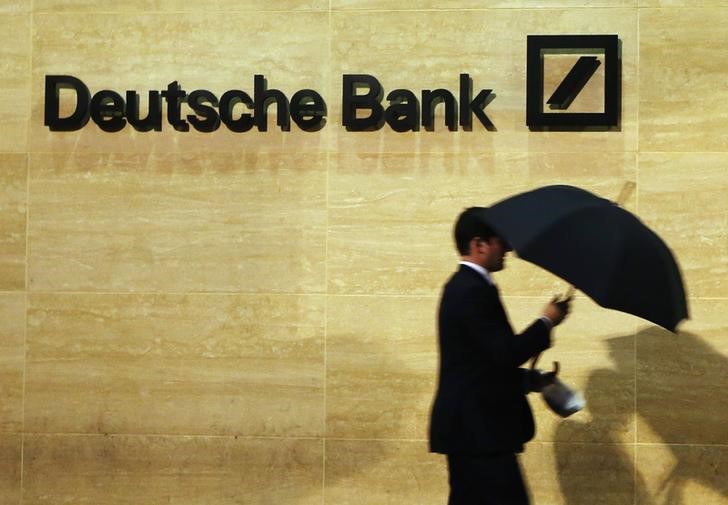Who is Kevin Hassett? Wolfe looks at the Trump ally tipped to become Fed Chair.
(Bloomberg) -- The most likely outcome of the “horse races” to win the White House and produce a Covid-19 vaccine is a policy mix that favors a weaker dollar by the end of the year, Deutsche Bank AG (NYSE:DB) strategists led by George Saravelos wrote in a note Tuesday.
The Bloomberg dollar index has steadied in September after a five-month slide fueled by a slimming interest-rate advantage and improving risk appetite as global economies gradually reopened.
But “a combination of the most negative real rates on record and the widest peacetime twin deficit leaves the dollar vulnerable to further weakness,” the report said. “The two key event risks for the rest of the year risk accelerating these trends.”
The question of what the election will mean for the dollar is a key topic of debate on Wall Street. At least one analysis holds that the greenback may gain after the vote, no matter who wins.
For Deutsche, a Democratic sweep in November would leave the dollar most vulnerable because it could lead to more economic stimulus, increasing deficits. A Democratic victory might also spur greater global cooperation and a pivot away from tariffs, which “has the potential to be very dollar negative,” the report said. Meanwhile, progress on a vaccine would boost expectations for global growth and support risk appetite, undermining the dollar.
“For our view to be right, global growth and risk appetite need to do well after the U.S. election, even if the next few weeks are very bumpy,” according to the bank. “We will be wrong if a deadly second Covid wave or a big new trade war breaks out.”
Here are some of Deutsche Bank’s calls in the context of that broad view:
- The euro, now at about $1.1710, should break $1.20, but the bank sees “few euro-specific positives,” and the European Central Bank won’t welcome further gains.
- The yen, now at about 105 per dollar, “remains cheap”
- The yen “can participate more in dollar weakness too, and we hold on to our year-end forecast of 100”
- “Real yields are high and it could benefit from reserve managers may be increasing their yen allocations”
- Also, Japan’s central bank is also unlikely to implement policy that would weaken the currency
- Emerging-market currencies may see bigger moves than major exchange rates:
- The growth gap with developed markets should narrow, and investors are underweight
- Specifically: The strategists see value in the South African rand and the Brazilian real as growth is “on the mend” in both countries
- The strategists would fund those long positions through a mixture of the dollar and the offshore yuan
©2020 Bloomberg L.P.
